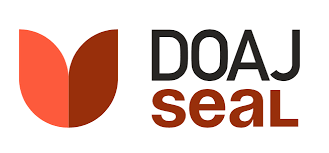The effect of steady torsion on fatigue crack growth under rotating bending loading on aluminium alloy 7075-T6
DOI:
https://doi.org/10.3221/IGF-ESIS.30.43Keywords:
Mixed-mode fatigue crack growthAbstract
Axles and shafts are of prime importance concerning safety in the transportation industry and railway in particular. Design rules for axles and shafts are mainly based on endurance curves for the material used according to the established standards and procedures. Recently, the knowledge of fatigue crack growth under typical loading conditions of axles and shafts with rotating bending and steady torsion is being object of research and industrial studies in order to apply damage tolerance concepts, mainly for maintenance purposes.
The effect of a steady torsion on fatigue crack growth under rotating bending is focused in this paper. While
axles and shafts in the transportation industry are traditionally designed on steels, the need for weight reduction due to fuel economy and eco-design constraints, lightweight materials must be considered for these
applications. In this study, fatigue crack growth on rotating bending axles and shafts with or without an applied
steady torsion is presented. Fracture mechanics approaches are used to analyze the results based on Stress
Intensity Factors developed for bending and torsion in shafts and show fatigue crack growth retardation when
steady torsion is applied. Fractographic observations using SEM are presented and helped to explain the fatigue crack growth retardation observed when steady torsion is applied to rotating bending. Results are compared for the same loading conditions on steels and relevant differences on fatigue crack growth are commented.
Downloads
Published
Issue
Section
Categories
License
Copyright
Authors are allowed to retain both the copyright and the publishing rights of their articles without restrictions.
Open Access Statement
Frattura ed Integrità Strutturale (Fracture and Structural Integrity, F&SI) is an open-access journal which means that all content is freely available without charge to the user or his/her institution. Users are allowed to read, download, copy, distribute, print, search, or link to the full texts of the articles in this journal without asking prior permission from the publisher or the author. This is in accordance with the DOAI definition of open access.
F&SI operates under the Creative Commons Licence Attribution 4.0 International (CC-BY 4.0). This allows to copy and redistribute the material in any medium or format, to remix, transform and build upon the material for any purpose, even commercially, but giving appropriate credit and providing a link to the license and indicating if changes were made.




































